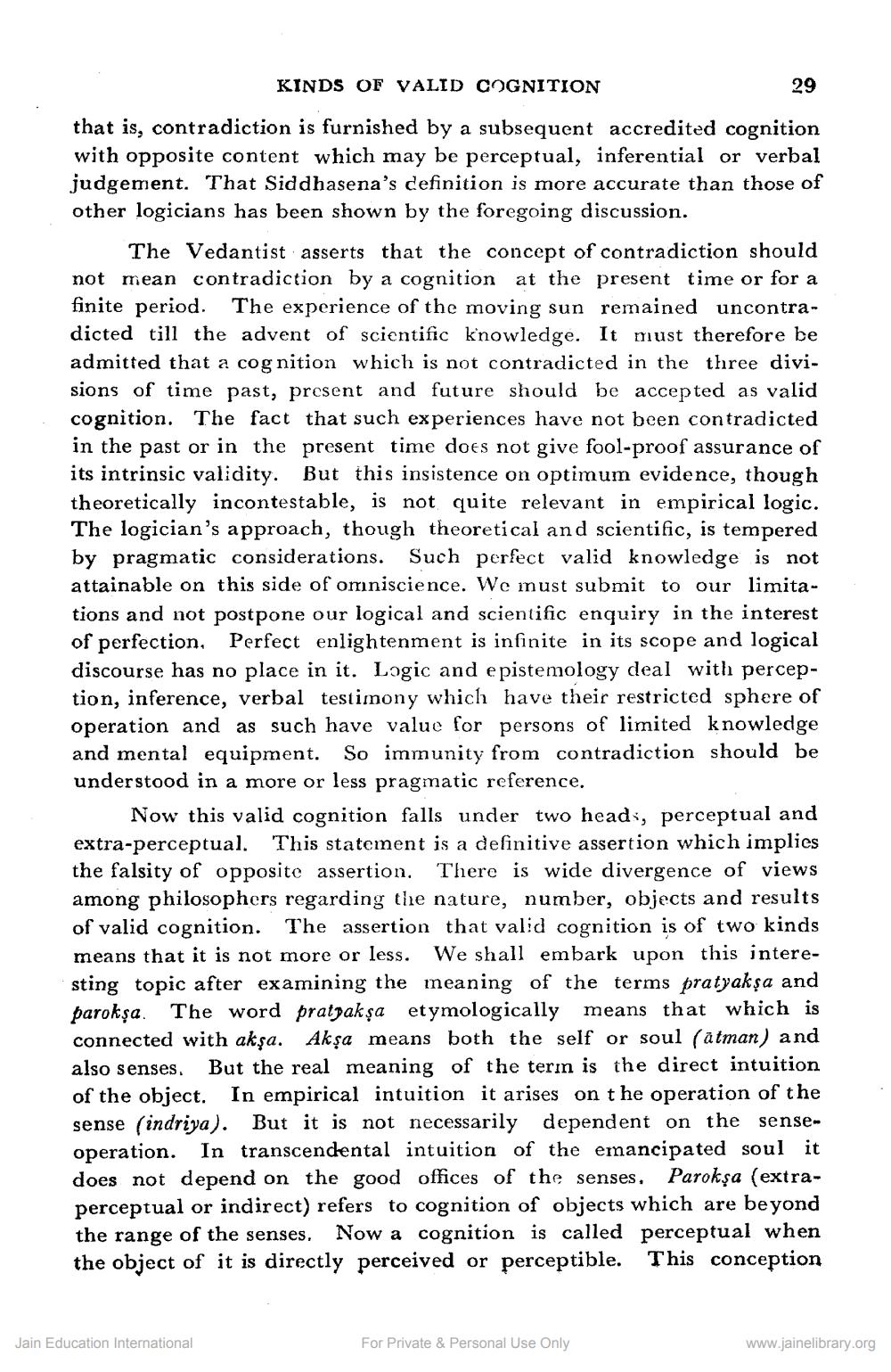________________
KINDS OF VALID COGNITION
29
that is, contradiction is furnished by a subsequent accredited cognition with opposite content which may be perceptual, inferential or verbal judgement. That Siddhasena's definition is more accurate than those of other logicians has been shown by the foregoing discussion.
The Vedantist asserts that the concept of contradiction should not mean contradiction by a cognition at the present time or for a finite period. The experience of the moving sun remained uncontradicted till the advent of scientific knowledge. It must therefore be admitted that a cognition which is not contradicted in the three divisions of time past, present and future should be accepted as valid cognition. The fact that such experiences have not been contradicted in the past or in the present time does not give fool-proof assurance of its intrinsic validity. But this insistence on optimum evidence, though theoretically incontestable, is not quite relevant in empirical logic. The logician's approach, though theoretical and scientific, is tempered by pragmatic considerations. Such perfect valid knowledge is not attainable on this side of omniscience. We must submit to our limitations and not postpone our logical and scientific enquiry in the interest of perfection, Perfect enlightenment is infinite in its scope and logical discourse has no place in it. Logic and epistemology deal with perception, inference, verbal testimony which have their restricted sphere of operation and as such have value for persons of limited knowledge and mental equipment. So immunity from contradiction should be understood in a more or less pragmatic reference.
Now this valid cognition falls under two heads, perceptual and extra-perceptual. This statement is a definitive assertion which implies the falsity of opposite assertion. There is wide divergence of views among philosophers regarding the nature, number, objects and results of valid cognition. The assertion that valid cognition is of two kinds means that it is not more or less. We shall embark upon this interesting topic after examining the meaning of the terms pratyaksa and parokşa. The word pratyakşa etymologically means that which is connected with akşa. Akşa means both the self or soul (atman) and also senses. But the real meaning of the terın is the direct intuition of the object. In empirical intuition it arises on the operation of the sense (indriya). But it is not necessarily dependent on the senseoperation. In transcendental intuition of the emancipated soul it does not depend on the good offices of the senses, Parokşa (extraperceptual or indirect) refers to cognition of objects which are beyond the range of the senses. Now a cognition is called perceptual when the object of it is directly perceived or perceptible. This conception
Jain Education International
For Private & Personal Use Only
www.jainelibrary.org




